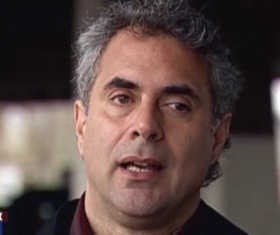
Calls it as he sees it: Journalist Ralph Cipriano
Covering the trial for the Philadelphia Priest Abuse Trial Blog, Cipriano opined in a recent post that Judge M. Teresa Sarmina is "often mistaken for a member of the prosecution team."
Cipriano's reference is to the fact, ignored by others in the media, that it seems almost all of the judge's rulings have gone in the favor of the prosecution – and against the Catholic clergy.
A record of troubling statements and actions
Sarmina's fairness has been questioned before. As we have noted previously:
• On January 31 (before the trial), Sarmina declared in an open courtroom in front of Catholic priests and their defenders: "Anybody that doesn't think there is widespread sexual abuse within the Catholic Church is living on another planet." Not only was Sarmina's remark incredibly biased, but it was factually wrong, prompting a call from the Catholic League for the judge to step down. [Read More]
• On April 23, Samina opined, "I would not be surprised if there are not many, many more people out there who have chosen never to come forward [to report abuse]." [Read More]
• Two days later, on April 25, Judge Sarmina questioned a witness in a manner more fit for a prosecutor by actually asking an accuser on the stand how alleged abuse affected his life personally. "Defense lawyers squirmed" upon hearing the question, reported Ralph Cipriano. [Read More]
• Most notably, on January 30, Judge Sarmina actually ruled that Cardinal Anthony Bevilacqua, the former archbishop of Philadelphia, was "competent" to give testimony at the important trial. Barely 36 hours after her ruling, the cardinal passed away in his sleep. The ailing prelate, at 88 years old, was practically hours away from dying of cancer and dementia, yet Sarmina ruled that this man should appear and testify in public at one of Philadelphia's most publicized trials in history. Unbelievable. [Read More]
There are more examples, but one gets the point.
One can also wonder if Sarmina is even an improvement over the first judge overseeing the clergy cases, the combustible Renée Cardwell Hughes. In pretrial hearings, Judge Hughes berated the defense attorneys for accused clergy, telling them to "Shut up and sit down" and addressing them as "baby." [Read More]
Indeed, if the clergy on trial are genuinely guilty of the crimes for which they are charged, they should be punished accordingly. But the bedrock of our justice system is that defendants receive a fair and honest trial.
Bravo to Cipriano for raising the question if this is happening in Philadelphia.
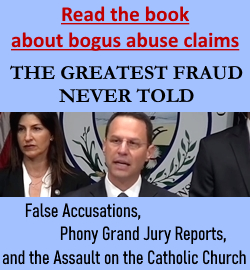


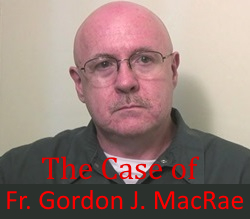
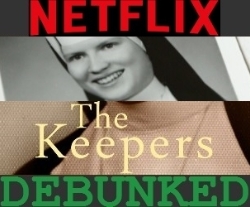
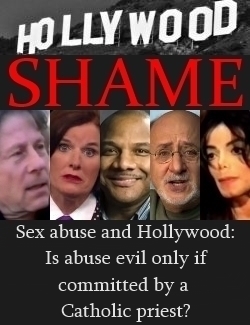
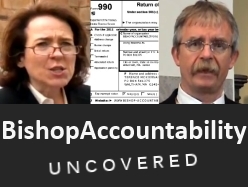
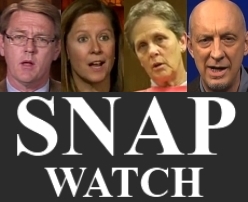
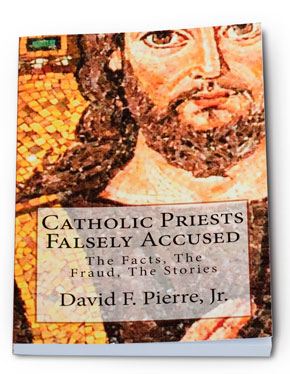
I think the core derangement in American jurisprudence (and the legislation governing it) was the 1980s 'victim-friendly' shift of the framing of a civil or – especially – a criminal trial.
In the Framing Vision the criminal trial is a two-sided affair: the prosecutor (on behalf of the entire People of that jurisdiction) and the accused. The stakes are very weighty: the deployment of the Sovereign authority against any convicted accused-defendant Citizen sufficient (in a criminal trial) to deprive a convicted Citizen of liberty, property, or even life itself.
What happened in the 1980s, and from the Right-'conservative' direction, was an effort to counter the 1950s-60s emphasis on the rights of the accused-defendant Citizen (rights enshrined in the Bill of Rights by the Framers) by suddenly pressing for the role of the 'victim' (as if the prosecutor, working for the People, doesn't already represent the victim) a-n-d even asserting that the victim has 'interests' and even 'rights' in a trial that are separate from and free-standing-from what interests the prosecutor works to represent.
Under this pretext, many of the Framing Vision's rights of the accused have been consistently and increasingly eroded through legislative 'reforms' and 'reforms' to the jurisprudence and jurispraxis. And this started from the Right, the putative 'conservatives' (which says something about the 1980s version of the law-and-order approach, if you think about it).
It was only then – starting in the 1980s but really hitting it off in the 1990s – that the Left discovered the uses of this gambit (and thus it became 'bipartisan'): radical feminism found it a handy way of a) going after 'men' (especially in domestic-abuse and sex-offense matters); tort attorneys realized that a huge new field of endeavor and profit had opened up; law enforcement and prosecutors found a whole new politically useful and fiscally remunerative (government monies provided liberally for the victim interests) avenue of endeavor; and the government in general found a way to engorge and expand its intrusive police power – and with the popular support of well-intentioned folks who thought that there could be no downside to 'helping victims' by 'tweaking' the laws and 'reforming' them.
But nobody got much public attention by pointing out the lethal consequences to the foundations and first principles of the Framing Vision as the boundaries set up to protect Citizens from the Sovereign police-coercive power were increasingly overrun and taken down. And we can see the results of that all over the place in this country now, in domestic and foreign policy matters.
Nobody (since some writer whose name escapes me just now mentioned it in the mid-1930s) really expected the Left-'liberal' side to be the source of so lethal a derangement to the Constitutional principles, but that's what happened and continues even now.
I am going to share a discovery I recently made: in doing so let me say I don't know the author and have no connection to the book: I came across a superb brief history of the victim-interests movement in the new book "Sex Panic and the Punitive State" by a professor named Roger Lancaster. The whole book is worth a read (it's an easy read, but a meaty one) but if you're pressed for time, I would recommend his Part Two and especially his Chapter 7. I think that if once you've read it you will have a much clearer grasp at all the issues involved, and you will also be able to see what's going on with this seemingly endless Catholic abuse focus.
I have looked at that Philadelphia trial site and Mr. Cipriano is doing a very useful job and doing it well.
Well there is at least one decent journalist out there.